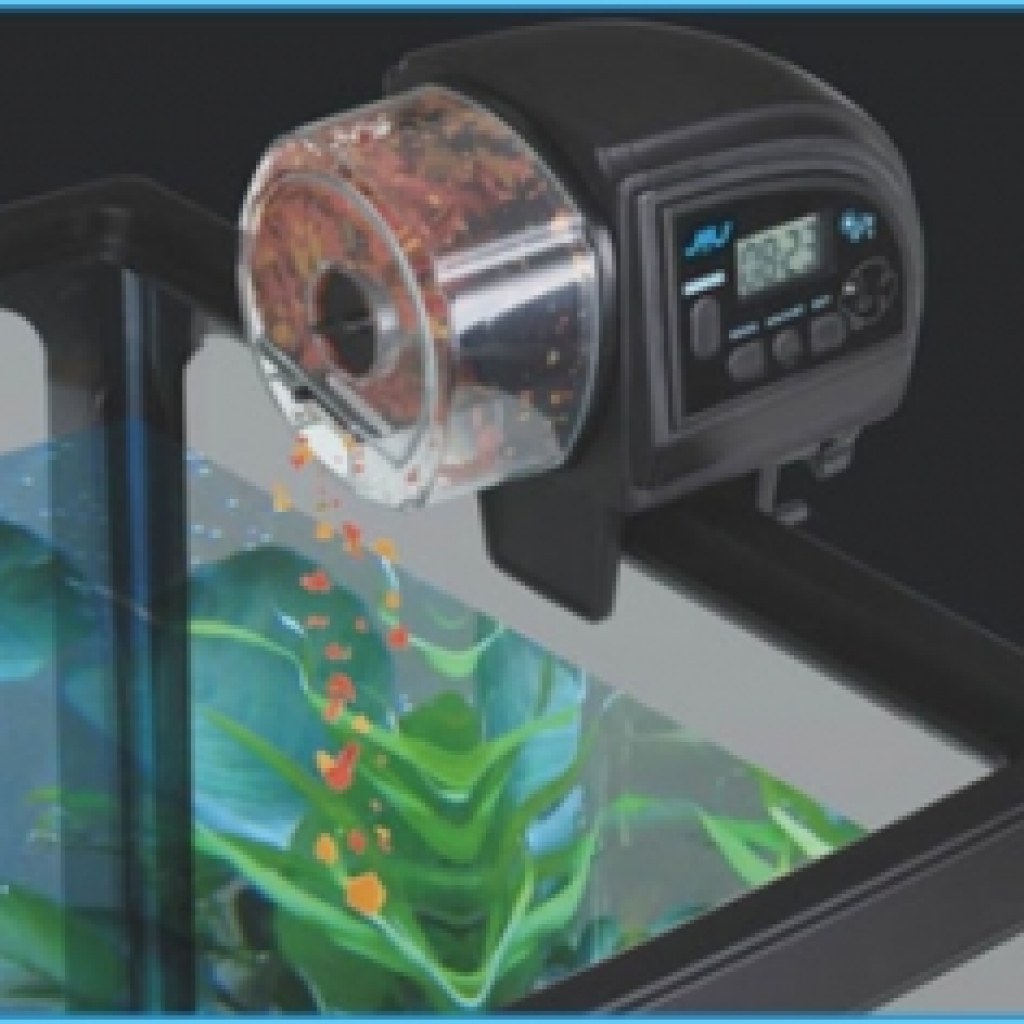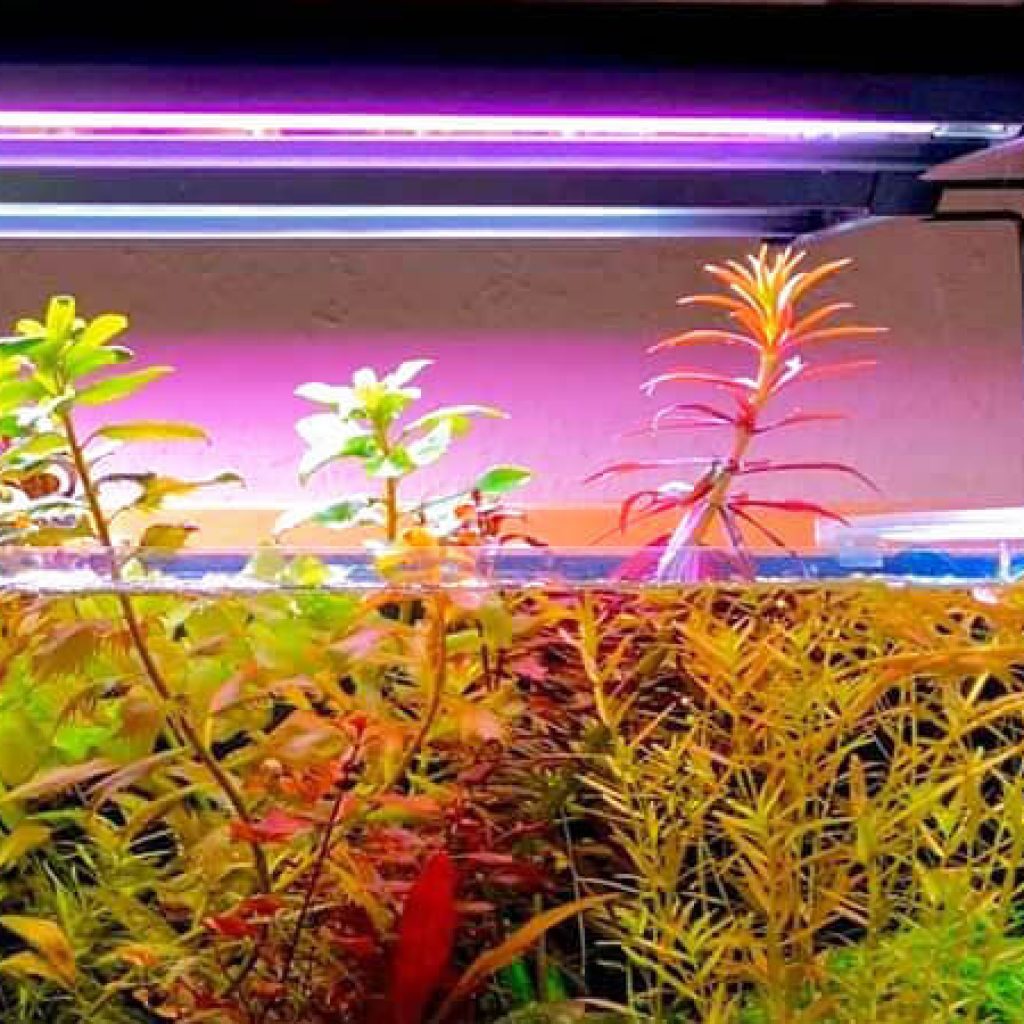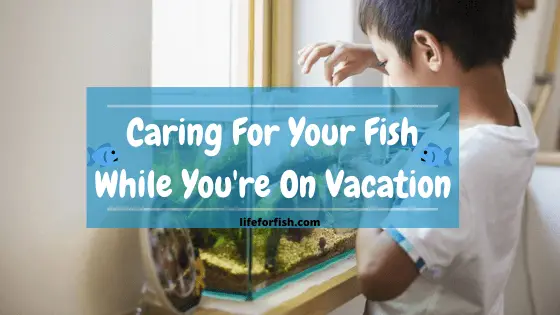If you have fish as pets, you can’t just take them with you, and you can’t leave them over at a friend’s house for the time you’re gone.
Fish are very delicate creatures, so caring for them is a very intricate task.
It is not easy to find someone who could care for them in your stead while you’re gone on vacation, so you will have to take various steps to make sure they remain happy and healthy for the time you’re gone.
Preparing to Leave
- Planning for the Length of Time
When leaving for vacation, you should plan how you’ll be taking care of your fish during your absence, depending on how long you’ll be away.
If you know that you’ll be gone for only a few days, then you probably don’t need to worry about feeding since most fish can survive without food for up to a week.
However, if you’ll be gone for more than a week, you know that you’ll need to find a way to feed your fish.
- Understanding Risks

You should also make sure you understand the risks associated with leaving your fish behind when you’re traveling.
Even though you can’t take your fish with you, you should know that there will always be risks.
For example, if you have very rare and expensive fish that are not very easy to care for, you want to have a proper care plan in mind and make sure that it is as foolproof as possible.
- Planning for Your Fish
When planning on how to care for your fish while you are away, you also have to know what kind of fish you have, since different kinds will have different diets.
Carnivores require live food or carnivore pellets, while herbivores have a vegetable and plant diet.
Omnivores have a mixed diet, and most fish usually fall under this category.
Feeding Fish
There are several ways to feed fish while you’re gone. How long you’ll be away has a significant impact on how you’ll be feeding your fish, since different methods are suitable for different lengths of time.
- Automatic Feeders

You can get an automatic vacation feeder for your fish tank, and fill the compartments with food.
The feeder releases food automatically into the water according to a schedule you input the program with.
Vacation feeders are only suitable for fish whose diet includes pellets or flakes because it does not hold live food.
For carnivorous fish, pellets can be used, and for herbivores, dried seaweed and vegetables can be put into the compartments.
Automatic feeders are great to use at any time, and as long as the food dispenser is full at the time you leave, and can hold enough food to keep your fish healthy for the time you’ll be gone, they are a great option.
However, automatic feeders work on electricity, so if you know that you have frequent electricity problems, you want to ask a neighbor to check in on it every few days.
It is best to have someone check in frequently even if you don’t have issues regularly, just in case.
It’s a good idea to get fish feeders that work on batteries to avoid missing feeding because of electricity problems.
You also want to test out the feeder a few times before you leave to make sure it’s working well enough.
Automatic fish feeders can be useful if you have different kinds of fish living within the same tank since each of them will need different kinds of food, which you may not get from other feeding options.
- Feeder Fish
You can also put feeder fish into the water, but make sure to use fish of different sizes, since the predator will eat them slowly, depending on their size. Don’t put live worms into the water because they will contaminate it.
- Feeder Blocks
Feeder blocks are blocks of food that are covered with a layer of minerals that slowly dissolves into the water over a few days, releasing the food for the fish to eat.
It is better if you experiment with a few blocks before you go since some fish reject some feeder blocks.
If you are leaving for a long time, you would want to find someone who can come and replace the block every few days.
When using feeder blocks, you want to make sure that the block is of sufficient size for the fish in your tank.
You don’t want to underfeed or overfeed them, though underfeeding has fewer risks.
Feeder blocks also require water circulation for the minerals around it to dissolve, so don’t use them in fish bowls or non-filtered tanks.
- Find a Fish-Sitter
Find a person who can come over and feed your fish for you.
This usually works best, especially if your fish are picky about their diet, but you’d have to make sure they are responsible, and that they have enough time, as well as knowledge to be able to feed your fish.
Fish are delicate, and you can’t leave them in the care of an irresponsible person.
The most important thing to tell your fish-sitter is that they must not overfeed the fish.
Excess food can not only foul the aquarium, but it can also be lethal for the fish. Fish tend to ‘beg’ for more food even if they are well-fed, but they must not be indulged.
To make sure your fish-sitter doesn’t accidentally give your fish extra food, you should pre-measure meals and keep them in a plastic container or bag.
Fish-sitters are a good idea if the fish is sick or needs special care since there will be someone to keep an eye on it.
There are plenty of pet stores and pet-sitting services that offer this facility, but you want to make sure that it is someone you can trust since you will be giving them access to your home.
Don’t Feed Your Fish
Living in the water means that you don’t have to remember to give your fish a drink like you would for other pets.
For food, freshwater fish can go for several days without food, so if you are leaving for a short amount of time, you don’t necessarily have to find a way to feed them.
This doesn’t mean that you should skip feeding, but healthy, adult fish can generally be left without food over the weekend and be safe by the time you get back.
Other Factors
Food is not the only concern when it comes to caring for fish if you are going on holiday. You need to make sure the water, lighting, etc. is also maintained if you are not going to be home.
- Lighting

Fish are more active during the day and less active at night when it is dark.
Therefore, it’s important to make sure that lights are not on all the time, and that you allow the fish plenty of time to sleep comfortably while you are away.
You can get timers that can turn the aquarium lights on and off regularly at fixed times, to make sure that your fish have a consistent day & night cycle.
You can also do this when you are at home, which will give you one less thing to do each day.
- Ensuring Water Health
It is vital to make sure that your fish are kept in safe, clean water to keep them healthy.
If you are going on vacation, you want to change the water in the tank during the week in which you are leaving to make sure that the water is completely clean.
Don’t do this right before you leave because you want to monitor the fish and make sure they are safe and adjusting to the new water as well.
It is also important to see that the water level doesn’t get too low while you’re gone since it can be dangerous or confining for the fish.
You can use water top-up devices to manage this. Several models can do this. Some work using gravity, while others work with a sensor and pump, but these require electricity to function.
When you return, make sure to clean the tank and test the water to make sure nothing went wrong.
You want to check for spikes in ammonia, nitrates, or nitrites and may have to perform large water changes in cases of problems until the water goes back to normal.
- Temperature
You also have to make sure that the aquarium temperature is constant. While fish are used to seasonal changes in water temperature if they are in the wild, dramatic changes can cause them to get stressed, which could make them susceptible to diseases.
If your holiday is during the colder months, you want to make sure that the water heater is working fine and is in good condition when you are gone, and your house temperature shouldn’t be too low.
In warmer months, see to it that the air conditioning kicks in if the temperature gets too high so that your fish are comfortable, and if you don’t have air conditioning, you want to find someone to check on them in cases of heat waves or high-temperature days.
Make sure you look up what kind of temperatures your fish will do well in, and if you have a collection of different kinds of fish, you also want to see that all of them are accounted for.
If a fish-sitter is to be coming in to take care of your fish for you, make sure they know not to change the thermostat too suddenly at very high or cold temperatures because it can have a very severe impact on the fish’s health.
Some aquariums come with heaters, which could solve the problem for you since they automatically turn off once the water reaches optimum temperature.
However, if you don’t have this feature, you will have to test out the air-con and heater settings to see what the right temperature is for the room.
However, there is a slight trick around this, which you can also use to make your fish safer while you’re away.
Before you leave, you can lower the temperature of the water just a bit – not too much for the fish to get cold and stressed, but not too little for there to be no effect at all.
The slight chill in the water will make the fish respond to it by becoming less active.
This will slow down their metabolism and results in them burning food and using their reserves much slower than they would otherwise, which would result in a lowered need for regular feeding.
But it is important to remember that this is only a temporary solution and that you must not use it as a regular strategy.
- Filter Condition
The filter of the tank is an important piece of equipment that cleans your tank water from poisons and impurities, so it is essential to make sure that it is in perfect condition before you’re gone.
It also creates circulation by moving the tank water around to make sure there’s enough oxygen in the water.
Before you leave, you should rinse and clean your aquarium filter to see to it that it is functional and doesn’t face any problems while you’re away.
You can also replace it for extra safety.
- Physical Condition of the Fish
Another very important aspect is the physical state of the fish itself.
Before you leave for your vacation, you have to see that they are not hurt or sick, and if you see any abnormalities, contact a fish shop or aquatic vet immediately to get your fish looked at.
If you don’t, you might end up coming home to a sick or dying fish. Sick fish can also infect other fish living in the same tank, so you want to be sure that your fish is safe and healthy before you leave as well.
By taking a few simple steps before you leave, you can make sure that your fish are happy and healthy while you’re gone.

